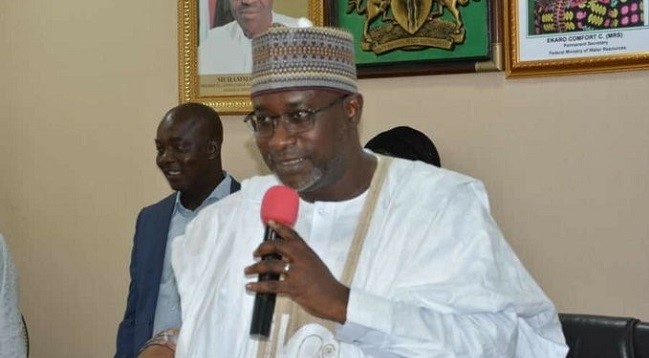The Organised Private Sector on Water, Sanitation and Hygiene (OPS-WASH) has started contributing toward donating $100 million for water and sanitation interventions in the country.

Stakeholders at an OPS-WASH webinar on Thursday, August 27, 2020 said creating an enabling environment for the sector to participate would help to change the narrative of poor sanitation and hygiene practices in the country.
Dr Nicholas Igwe, the National Coordinator OPS-WASH, said that the sector was in dire need for the private sector to intervene in bridging the financial, sustainability and efficiency gaps in the sector.
He said it was not necessary to delve into the importance of rectifying the gaps in the sector as COVID-19 had projected the potentially devastating implications of disease and virus outbreaks.
Igwe said that partnership between the private sector and the Ministry of Water Resources was crucial to end the challenges of open defecation and other water and sanitation in Nigeria.
He noted that the OPS-WASH had categorised its financial strategies under a few pillars of Nigerians in Diaspora, Financial Institutions to help in Sanitation Financing, telecommunications organisations amongst others.
The coordinator said the group had set out to introduce a tax credit scheme to Executive Order 009 as a potentially mutually beneficial source of financing for the sector for companies and organisations.
He said that the objective of mobilising private capital to finance the Water, Sanitation and Hygiene (WASH) Sector in Nigeria was for the proposed establishment of a N400 billion Blue Bond Issuance Programme.
Mr Babatunde Obaniyi of the United Capital Ltd. said there was no better time to talk about sanitation and hygiene than now following the impact of COVID-19 pandemic in the country and globally.
He said mobilising private finance for WASH interventions was on the premise of the Executive Order 009 by the president.
He said that all funds collected would be audited in line with corporate governance of accountability and transparency.
Obaniyi said implementation of the blue bond would consider the open defecation free Nigeria target of 2025 and the Sustainable Development Goals.
Earlier, Minister of Water Resources, Mr Suleiman Adamu, commended the OPS-WASH team and the Nigerians in Diaspora Commission (NIDCOM) for their efforts, saying the current intervention was a welcome development.
Adamu said the proposed blue bond would get the needed support from the Federal Ministry of Finance as the ministry was also benefiting from the N500 billion Economic Sustainability Fund for COVID-19.
The minister called for dissemination of information through local messages, saying this would go a long way towards behaviour change to build and use toilet facilities.
Mrs Abike Dabiri-Erewa, the Chief Executive Officer, NIDCOM, pledged to continue to support the OPS-WASH in changing the narrative of poor hygiene practices in the country.
She said a lot of work had started with so much excitement, saying that Nigerians in the Diaspora were ready to participate in the adoption of a toilet project.
UNICEF Chief WASH Specialist, Mr Zaid Jurji, said ending open defecation practice in the country had become a priority, saying the scale of work needed to be done was enormous.
He said the private sector was a huge and unexplored party in development processes, noting that the trend of sidelining them ought to change.
“There is the need to harness the opportunity of the private sector and they could train toilet business owners, engage sustainable partnership through sanitation financing and marketing.
“It is important for tiers of government to create an enabling environment to function effectively,” Jurji said.
According to projections from WASH stakeholders, the country needs to build no fewer than two million toilets annually if it must meet the ODF target by 2025 and SDGs by 2030.
Some of the private sector operators supporting the project include Guinness Nig. Plc., Nestle Nig. Plc., and Coca Cola Company.
By Tosin Kolade
